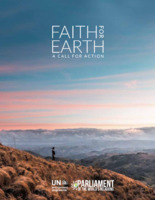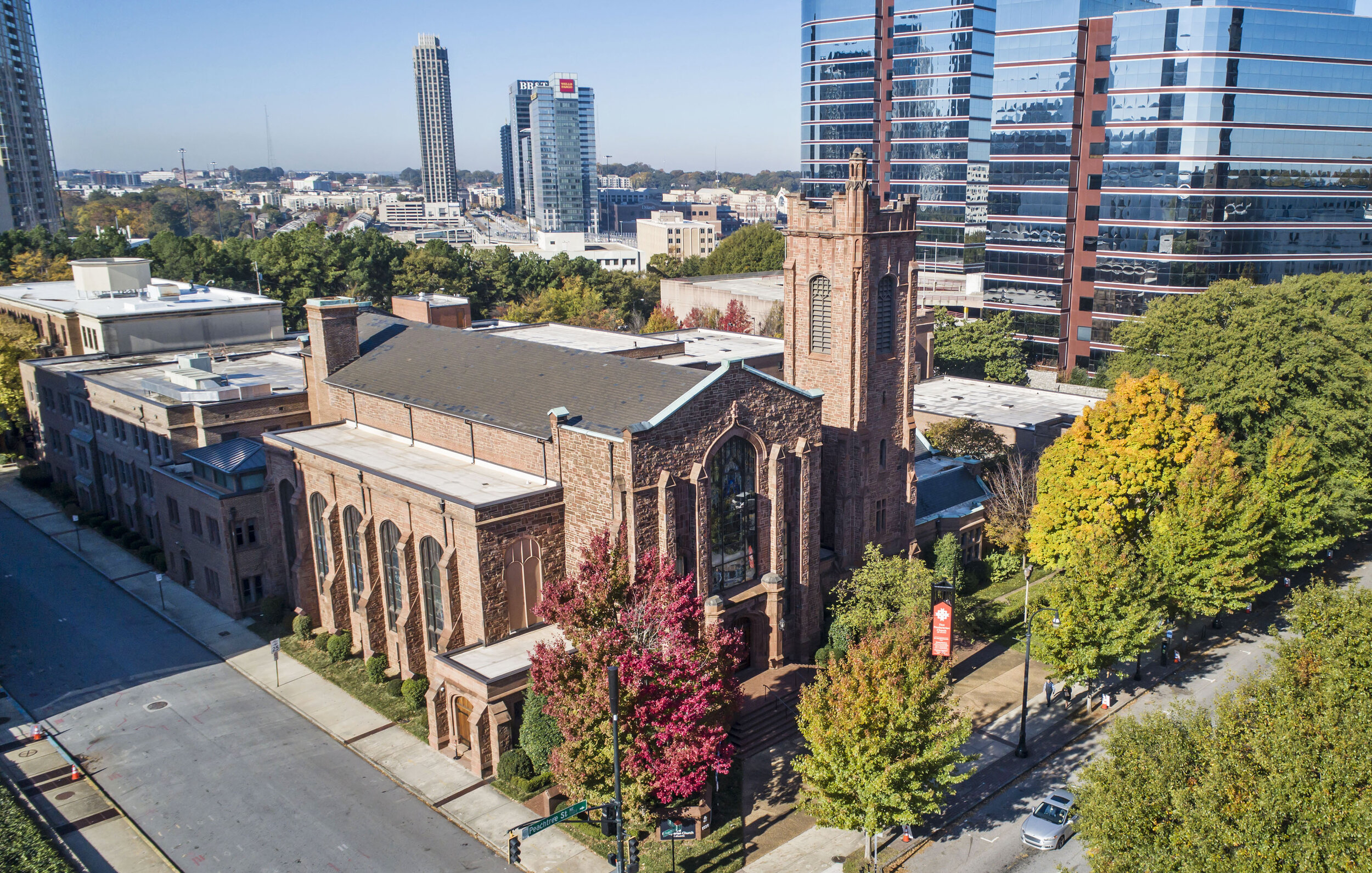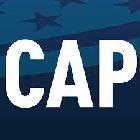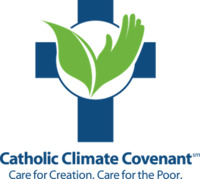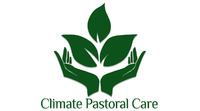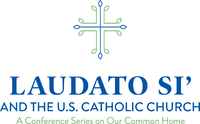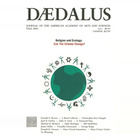Search
238 items
-
Faith for Earth: A Call for Action
This book was first published at the beginning of the twenty-first century. A joint project of the United Nations Environment Programme and the Interfaith Partnership for the Environment, it was titled Earth and Faith: A Book of Reflection for Action. The partners printed tens of thousands of copies and gave them to schools, congregations, and communities throughout the
world. The book described the growing threats to our planet’s life support systems, the reverence all faiths share for life on Earth, and the responsibility that people have to future generations. -
Zoom Events: Greening the Bible
The goal of this short course is to read the Bible afresh: to reinterpret texts of terror (for other creatures) and to reclaim passages that show the importance and agency of nonhuman persons. It is intended as a tool for forming earth-inclusive Christians. -
ECHO Global Farm
ECHO introduces sustainable plants, climate-resilient techniques, and technologies to farmers around the world who are struggling to feed their families.
Through partnering with local NGOs, farmers, volunteers, and missionaries, ECHO is able to be efficient with their resources in providing aid where it's needed the most.
Empty bellies and empty hearts lead to pain and suffering for individuals, families, and communities across the world. ECHO believes that as active participants in the Great Commission and stewards of great agricultural knowledge, it is their duty to grow and make disciples. -
Profile: EquaSion (Equality, Spirituality, Inclusion)
EquaSion, formerly known as the Bridges of Faith Trialogue, is a non-partisan civic organization founded upon interfaith dialogue that works to develop educational and community service programming to foster greater understanding, respect, compassion, inclusion, and engagement for all people and faith communities in Greater Cincinnati and beyond. -
Sustainable Consumption Research and Action Initiative (SCORAI)
The Sustainable Consumption Research and Action Initiative (SCORAI) is a knowledge network of professionals working at the interface of material consumption, human well-being, and technological and cultural change. We aim to foster a transition beyond the currently dominant consumer society. SCORAI provides a forum for scholars and practitioners striving to understand the drivers of the consumerist economy in affluent technological societies; to formulate and analyze options for post-consumerist lifestyles, social institutions, and economic systems; and to provide the knowledge for emergent grassroots innovations, social movements, and public policies. -
The Bhumi Project Hindu Plans for Generational Change
This article outlines the Bhumi Project's nine-year plan to encourage better environmental practices among Hindu communities. This plan is broken down into three sections: Networking, Action, and Education. These sections are derived from Hindu traditions and creatively suggest how such traditions can be tailored to be more environmentally friendly. The Network section details how the plan will be dispersed throughout Hindu communities and provides incentives for those who choose to follow the plan. The Action section focuses on what can be done at the organizational and individual level to promote sustainability in Hindu communities. The Education section of the plan discusses how the Bhumi project intends to provide informative resources for communities, schools, and priests to learn about the interconnectedness of the Hindu faith and the environment. Overall, the Bhumi Project intends to inform Hindu communities about environmental issues and encourage them to adopt pro-environmental behaviors that are in line with the Hindu faith and traditions. -
Religion and the Environment in the Rhetoric of Thomas Berry and Pope Francis
This academic journal entry is based on reflections by geologian Thomas Berry and religious figure Pope Francis as they draw a connection between the environment and religion.
The article covers various perspectives to cumulatively demonstrate the need for environmental change, whether it is rooted in the Judeo-Christian belief in the biblical responsibility of man to protect the earth, or other non-religious roots of responsibility. Both figures agree that there will be consequences for not implementing better environmental practices. -
How Religion Impacts Americans' Views on Climate Change
This article discusses the findings of a survey conducted by the Pew Research Center in 2015. Surveys of Mainline Protestants, Hispanic Catholics, and Evangelicals demonstrated that views surrounding climate change vary by religious affiliation. More specifically, religious observance was also found to be correlated with specific views on climate issues. -
Climate Change Impacts on the Water Resources of American Indians and Alaska Natives in the U.S.
This article is an overview of the impacts climate change has had on tribal water resources and, consequently, on the lives of Alaskan Natives and American Indians. The articles discusses the increasing hazards of the land they live on and how changes in climate and the ecological landscape significantly affects their daily lives. -
Religious Americans Demand Climate Action
This article offers a unique perspective on the intersection of environmentalism, religion, and politics. On the one hand, the current established consensus of virtually all religious groups is that climate change is real and human-induced, with certain religious groups placing extra pressure on politicians to advance climate legislation quickly. On the other hand, politicians have interacted with important religious leaders to rouse motivation among congregations to mitigate the effects of climate change. The article also includes actions being taken by religious groups toward fighting climate change on both national and local platforms. -
Evangelical Group Releases Climate Change Report, Urges a Biblical Mandate for Action
The article discusses a new report called “Loving the Least of These: Addressing a Changing Environment” by the National Association of Evangelicals that cites a “biblical basis” for stopping climate change. The report was written to spur fellow evangelicals to rally together and address the issue. It cites the Bible, with verses about caring for creation and each other, as well as basic climate science about air pollution as its reasoning. An interview about evangelicals’ current views on the issue with Dorothy Boorse, one of the authors of the report, is included. -
The Language of Science and Faith: Straight Answers to Genuine Questions
This book discusses the links between science and faith and attempts to reconcile the two communities by demonstrating ways in which Christians can find God in scientific theories. Written by Francis Collins, a leader in the Human Genome Project, and scientist Karl Giberson, it offers a holistic view of the intersection between science and religion. -
American Jewish World Service- Land, Water, and Climate Justice: Story Collection
The American Jewish World Service compiled a website of their outreach stories from the US, Africa, Asia, Latin America, and the Caribbean. Reflections from work with Indigenous communities are included as well. The environmental activism showcased on their website also defend women and their crucial involvement with agriculture and the environment. From the website;
"We aid communities and movements organizing to protect the land, water and natural resources that people depend on for their survival".
More information on how to get involved is listed on their website. -
Religions of the World and Ecology
"Enroll in these free self-paced courses from Yale University and Coursera to explore the answers to these questions and experience the rich ecological teachings and dynamic practices of religious traditions across our planet Earth." -
Dharma Action Network for Climate Engagement (DANCE)
"Dharma Action Network for Climate Engagement (DANCE) is a space for connecting to explore the breadth of possible Dharma responses to climate change and related issues.
As well as an opportunity to network and form more localized groups of support, activity and political action, a wide range of creative ideas and experiments in passionate and compassionate engagement may be shared, incubated, and hatched together through this space.
It can also serve as a more central forum to discuss perspectives and to voice feelings about the environmental crises we face; and as a hub for information on relevant events and resources, including related retreats, workshops, artistic and other enterprises." -
All Education is Environmental Education
"[This is the final article in a series about the connection between Jewish identity, food, and the natural environment, written by grantees and partners of The Covenant Foundation.]
As we too slowly wake up to the human-made climate emergency, it’s critical to consider the role of the Jewish educator. We know that the answer to this crisis is not simply the acquisition of more knowledge. Rather, the question becomes:
How can we teach our students in ways that help them become better equipped to engage with the climate emergency and other environmental crises?" -
Climate Action After High School: A Community Conversation
"Catholic Climate Covenant is hosting a community conversation for recent high school grads looking to be involved in climate action efforts on their college campus and beyond. Hear from current college students and virtually meet other recent high school graduates involved in faith-based climate justice efforts.
Email Kayla Jacobs at kayla@catholicclimatecovenant.org or Diana Marin at diana@catholicclimatecovenant.org with any questions." -
2023 Catholic Youth Climate Summit
"In February 2023 we hosted, in partnership with the Archdiocese of Chicago and youth leaders, a Catholic Youth Climate Summit. Check out this video from the summit and hear why youth care about the climate crisis and how they connect their faith with climate action. Thank you to all of our students leaders for putting together this great event for their fellow students!" -
At Catholic climate conference, Paris Agreement architect challenges US church to commit to net-zero emissions
National Catholic Reporter covered the Catholic Climate Conference for Earthbeat. The architect of the Paris Agreement challenged the US church to commit to net-zero emissions. -
Encounter for our Common Home
"'Encounter for Our Common Home' is a broad U.S. Catholic coalition-led training and advocacy campaign to encounter and urge government and Church leaders to support climate solutions from a place of faith and reason. When you join you will be the first to hear of campaign events including community-building events, trainings, young adult materials and engagement, webinars, resources, action alerts and more!" -
Wholemakers
"We're thrilled to introduce Wholemakers, a groundbreaking resource for young adults focused on creation care and integral ecology. Developed for young adults, by young adults, this resource weaves together the latest climate science with insights from the Catholic tradition to equip young adults to be the faithful protagonists of transformation the world needs." -
Climate Pastoral Care Course
"Faith communities are equipped with their own traditions and tools that can help us face the climate emergency. Learn more about the physical, emotional, mental health, and spiritual impacts of the climate crisis and how to address them through the practice of pastoral care in this new thirteen-module course." -
Laudato Si' and the U.S. Catholic Church: A Conference Series on Our Common Home
“'Laudato Si’ and the U.S. Catholic Church: A Conference Series on Our Common Home' is a biennial series to equip and inspire Catholics to more deeply integrate Laudato Si’ and its climate change teaching into the U.S. Church.
The 2023 convening will be virtual and open on June 14 with a keynote address from Ms. Christiana Figueres, former Executive Secretary of the United Nations Framework Convention on Climate Change (UNFCCC) who brokered the Paris Agreement.
Throughout June and July, the series will host virtual 90-minute sessions on the goals of the Vatican's Laudato Si' Action Platform. Each session will feature a scholar who describes the goal, a practitioner who outlines their work to achieve the goal, and a moderated Q&A.
Catholic Climate Covenant is coordinating the Laudato Si' Action Platform in the U.S. Catholic Church through its God's Plan(et) initiative and Creighton University is a Platform signatory.
The first 'Laudato Si' and the U.S. Catholic Church' convening was held at Creighton in June 2019 and the presentations were published in the Journal of Moral Theology. The second was held virtually in June 2021 and the presentation recordings are available here." -
Indigenous Americans: Spirituality and Ecos
A brief article about the indigenous peoples' traditions and characteristics regarding their religions and religious beliefs and the connection to the environment. Author Jack D. Forbes goes over the "indigenous cosmic visions" and their "conception of creation as a living process, resulting in a living universe in which a kinship exists between all things". He goes through different entries and quotes of indigenous figures in the Americas and their thoughts and connection to land and religion. -
Dayenu: A Jewish Call to Climate Action
Dayenu is a Jewish organization that confronts the climate crisis through spiritual and political action. The organization has several "circles" spread around the United States and Canada that meet at least once a month and participate in 2-3 national campaigns a year. Dayenu offers resources to start a local circle or co-affiliate an already existing organization.

